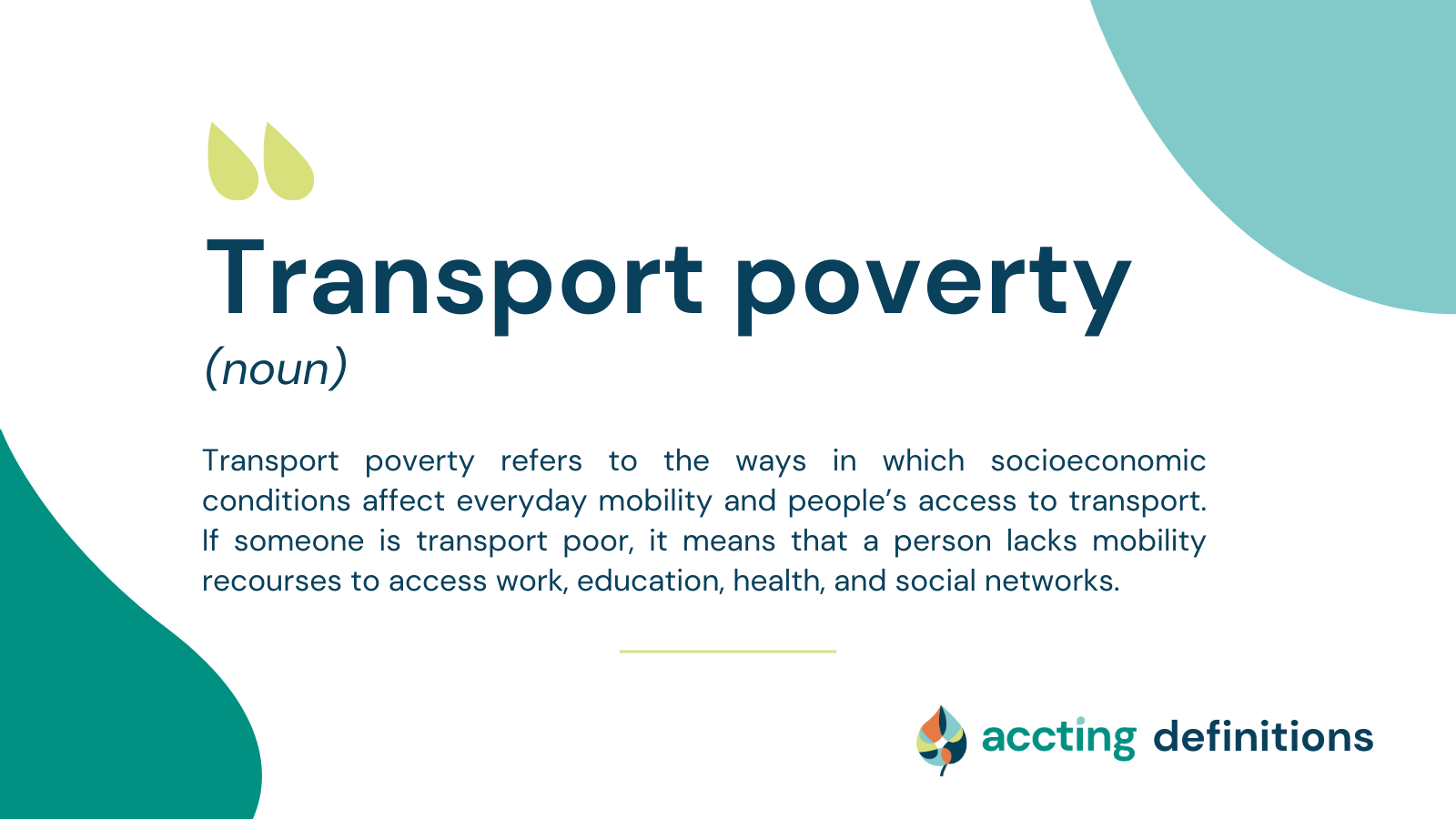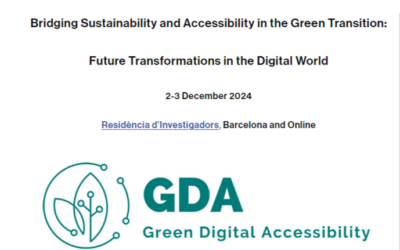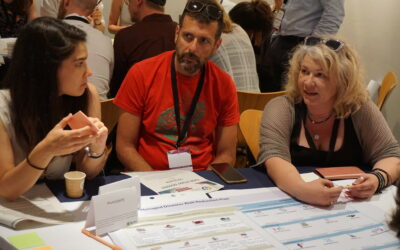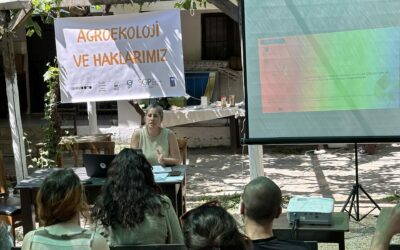Transport poverty refers to the ways in which socioeconomic conditions affect everyday mobility and people’s access to transport. If someone is transport poor, it means that a person lacks mobility recourses to access work, education, health, and social networks.
Transport poverty emphasises that mobility [1] is unequally distributed – that not all have the same possibility to be mobile on equal terms – sometimes even within the same household. Low-income groups spend a higher percentage of their income on transport, while at the same time tending to have greater difficulty accessing high quality transport solutions. The result is that low-income groups travel less, have fewer job and study opportunities, and with that are more likely to be stuck in their low-income living situation. Lucas and colleagues (2016) suggest that a person is to be considered transport poor if their ability to satisfy their everyday needs and activity is limited by at least one of the following conditions:
- The availability of transport is poor and does not suit the individuals’ physical capabilities and conditions
- Transport options does not reach important activities (such as workplace, health service, shops, or education) where the individual can fulfil their daily activity needs
- The necessary costs for transport make the household economically vulnerable/poor
- Time spent on traveling is excessive, leading to time poverty [2] or social isolation
- The travel conditions are dangerous or unsafe for the individual
Hence, transport poverty is more than simply access to transport. Different factors related to living conditions, health, education, labour market, welfare, and local conditions such as available public transport shapes the mobility of an individual. In a transition to more sustainable transport, transport poverty with its focus on accessibility, affordability and exposure to dangers, needs to be considered.
To know more:
- Cresswell, T. (2010) Mobilities 1: Catching up. Progress in Human Geography, 35(4), 550-558.
- Lucas, K., Mattioli, G., Verlinghieri, E. & Guzman, A. (2016) Transport poverty and its adverse social Consequences, Transport, Volume 169, Issue TR6
- Martens, K. (2013). Role of the Bicycle in the Limitation of Transport Poverty in the Netherlands. Transportation Research Record, 2387(1), 20–25.
- Social Exclusion Unit. 2003. Making the connections: final report on transport and social exclusion.
- Turner, J., Grieco, M. (2000) Gender and Time Poverty: the neglected social policy implications of gendered time, transport and travel. Time and society, 9(1), 129-136.
[1] Mobility is a wider concept than transport as it includes everyday movements of people, ideas, meanings and things across different scales and relations of power (Cresswell, 2010).
[2] Time-poor refers to a lack of time. Women tend to be time poor more often than men because of the gendered division of labour in a household. For example, women tend to do more time-consuming household-related chain trips than to make single purpose trips (Turner and Grieco, 2000).




